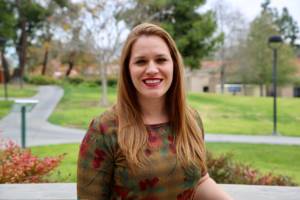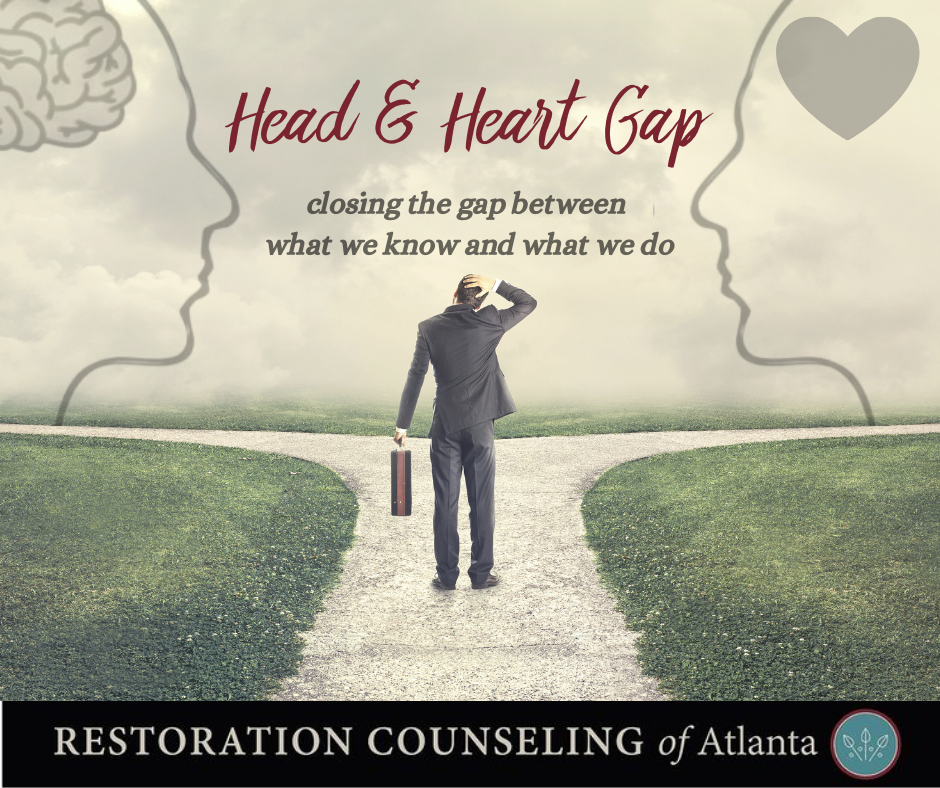Closing the gap between what we know and what we do
“The longest journey a man must take is the eighteen inches from his head to his heart.”
– Lau Tzu, Chinese philosopher
One of the most aggravating experiences is to feel determined in our thoughts about a certain path, only to be struggling to execute the knowledge we have. We know we shouldn’t indulge in an entire row of Oreos if we want to lose weight, but we set that aside and reach for the cookies anyway. Or we know that we should say no to that request to volunteer when we are already stretched thin and bordering on burnout. Then we find ourselves muttering, yes. What gives?
We are rarely uninformed of the possible cost or consequences of our actions or how the action is contrary to our expressed goal. Yet, we acknowledge the warning and proceed in the opposite direction. What overrides seemingly better judgment in the moment? We tend to see the journey mentioned above as a “mind over matter” formula of disciplining and wrangling our heart into alignment with the information we have compiled in our heads as good and right and best. And yet, there seem to be powerful forces impenetrable to that approach.
We are heavily influenced by the 17th century Enlightenment ideals that suggest that rational thought is the best route for human beings to make progress. We began to believe that “…prized above all is…knowing facts, knowing “the truth,” and knowing we are right. Right about the way things work, the way to behave, and the way to think about issues of faith” (Thompson, 2010). We began to believe that if we could just know the right path, we could will ourselves toward execution. And yet, as most of us are acutely aware, the success rate of this approach seems to suggest the formula is more complex than that.
Ancient philosophers such as Plato and Socrates saw the sensory-laden experience of the body to be a hindrance to wisdom. We blame and criticize and cajole our embodied experience that conflicts with the path we have determined is right. As a species, we seem to have been at war for ages with our body, seeing it as the problem, and wrestled against God’s declaration that embodied humans were “very good” (Genesis 1:31). In psychology, this would be a top-down approach. It would tackle our thoughts as the primary means of driving change. It would hone in on our flawed thinking and work hard to figure out how to fix it. And while our thinking is important, the results from this approach show that it is often impotent to bring about deep sustained change.
The Bible’s version of knowing seems to confirm the top-down approach limitations. In our culture, we refer to knowledge as being intellectually informed or possessing information about a principle declared as the best path. This western way of thinking approaches an eastern piece of literature (the Bible) primarily from a desire to, as Thompson (2010) mentioned above, figure out the right way to think and behave.
While morals and values are important, this shifts relationship and trust onto the back burner and interacts with God primarily as an authority figure who we must figure out how to please. A challenging approach considering the paradoxes present in the Bible, such as an instruction to feasting AND fasting or calling toward solitude AND community. This view seeks to resolve our human anxieties by having a chartered path that garners being good and approved of. Still, it also results in leaving vital pieces of our humanity behind. In Jeremiah 3, God speaks to this style of relating as being unhelpful and undesired. He describes it as returning without a whole heart, but rather in pretense seeking to reconcile by going through the motions of repairing the relationship.
This is contrary to the Bible’s admonitions towards faith, a relational reality that we cannot cultivate apart from expanding our western view of thinking as primary and embracing the right side of our brains. Our thinking approach seeks to foster change through pummeling our thoughts with verses that admonish us with the truth and hoping with fingers crossed that it will sink into our hearts. This thinking is similar to the culturally popular idea of mantras. We believe if we recite that we are strong, beautiful, and enough or that God is good and kind that perhaps we will eventually begin to believe it. Instead, we often work hard to have faith and block out all realities contrary to what we know is true, which hinders the relational process that builds integrated rooted faith.
Biblical knowing approaches things differently; it is experiential knowing. It is a knowing that does not separate the head and the heart. Rather, it emphasizes that a bottom-up approach that engages the body as important. It does not sever objective knowing and subjective knowing, pinning our head and heart against each other. Rather, it unifies the body and utilizes the heart to drive integrated change. Contrary to ancient philosophers’ belief, the body brings vital wisdom that must be heeded rather than disregarding the heart and seeing it as a hindrance to wisdom.
This is why knowing the Oreos are not the right choice does not equate to choosing differently. Rather, we must explore instead of rejecting the areas that override our better judgment. Below are a few places to consider pressing in with compassion rather than fighting against.
- Pay attention to shoulds – Noticing thoughts that involve “should” can indicate that we are fighting against reality instead of confessing the truth. It can be helpful to begin paying attention to these thoughts and exploring with kindness whether we are relating to our experience with harshness, impatience, or invalidation.
- Make friends with desire – Our relationship with desire can be fraught with challenges. We often make vows to kill desire due to our fears of how powerful it is . We fear that it can become latched on to unwanted places – like a whole row of Oreos. However, the Bible tells us not to lose heart and points to our powerful desires being a segue way to a deeper relationship with God. These desires speak to longings of the human heart that are innately good, and if ignored, will hijack our lives in unhelpful ways.
- Slice shifts forward more thinly – Many times when we are pursuing change, we shift into extremes and get caught in cycles of deprivation and indulgence. This sets up an unrealistic expectation and often employs guilt and shame as motivators. Finding ways to change in small adjustments over time and getting to know the ebb and flow of our cycle can point to underlying needs being neglected by deprivation and masked by indulgence.
All parts of our humanity have value and can teach us if we listen to the natural feedback in God’s design. Be mindful of prioritizing honesty and dragging it into a relationship with God and others through confession. Over time, this is the route to transformation and closing the gap between our head and our heart.
Thompson, C. (2010). Anatomy of the soul: surprising connections between neuroscience and spiritual practices that can transform your life and relationships. Carol Stream, IL: Salt River.
Writte n by: Becca Cline, LPC
n by: Becca Cline, LPC
Roswell and Buckhead Locations
becca@restorationcounselingatl.com, ext. 156
Becca works with male and female clients who are 13 years or older. She sees couples, families, and individuals. She also works with clients dealing with various issues, including depression, anxiety, addiction, grief/loss, trauma, abuse, spiritual issues, sexuality, family of origin issues, codependency, anger, and interpersonal and relationship issues. In addition, Becca also has experience in running process groups.

